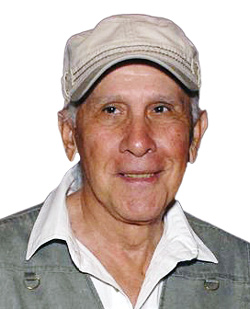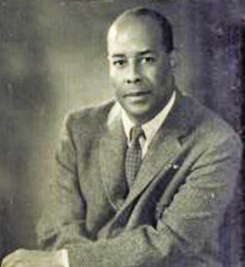November 20, 2019 issue
Authors' & Writers' Corner
medical world

A number of reports have come out in recent years, with experiments being done in several countries, on replacing heads and bodies. This is not science fiction. This is real. Wikipedia points out the attempts of a French surgeon to graft the head of a dog on a decapitated dog, over a hundred years ago. The new head showed some life but died soon afterwards. Just think if he had put the head on a different species of animal and it had lived, what it would have looked like!
Soviet experiments in the mid 1950’s, again with dogs, found that death was usually the result because of rejection problems by the recipient dog. No mention is made of the pain and suffering of the animals.

Paying huge sums of money, usually the rich and foolish, they are waiting for a cure before they are awakened. I hope the person who is supposed to “wake” them up hasn’t fallen asleep or actually died a natural death. Can you imagine a world that you would wake up to that is “post Trump”, if the world still exists?
Similar to this is the wealthy person taking a long term space ride. It is always the wealthy who get the first kick of the can. In this scenario, following the Theory of Relativity, the aging process slows down the faster you go, until you reach the speed of light? The astronauts living or taking a trip in space have reportedly come back younger than they would have been had they stayed back on earth.
However, there are a couple of clinchers. It didn’t take them long to catch up their age. It also left them with some bodily functions that were anathema to health. Fortunately over time, they seem to have made a recovery. The next time someone tells you to “take a hike” they may be giving you a suggestion on how to live longer.
There are some interesting side effects from this speed theory. Reportedly, the faster you travel in your car, the heavier you weigh. Now that might be a good idea to gain weight! I don’t know if you slow down, you could lose weight? Try it and see.
The Chinese have advanced with mouse head transplants which reportedly survived for six months. Imagine the poor mice waking up and wondering what is going on???
An Italian doctor has recently had heads shaking when he announced he was ready for the first volunteers for a head transplant. Successful face transplants have been done, why not the whole head? Believe it or not volunteers are coming forward.
What are the ethics and morality behind these operations? The ends justify the means? Fame, fortune, a remodeling of the human race, living forever…It is interesting to note that the majority of these experimental operations are being done in totalitarian countries. Democratic countries so far have resisted, having ethical concerns. Dictators who play God love this kind of head operation. Many doctors are dead set against it.
The medical challenges are many and complex, not to mention the expense. The reconnection of the spinal cord seems to be the most complex. There are lots of fine “wires” to connect up, plus bone and vessels. Doctors say they have found a type of super glue that works wonders. I personally use Gorilla glue for many broken things, just about everything except bones (smile). Please don’t try it on teeth and put the dentist out of business! The psychological effects of head transplants can hardly be imagined.
Let’s be practical. With a number of heads to choose from, you could be spoilt for choice. So where are the heads to come from? It is simple. There are probably just as many people who would exchange a nice body for a head. You can meet somebody on the street, strike an exchange deal, and find a head doctor.
You have a choice, head or body. I know some guys who love those curvy bodies they see on women. Now they can have their own curvy body after a transplant. Sex change operations would be a breeze. The list goes on. What about grafting one head onto another? As they say two heads are better than one.
If you don’t like what you got, new head or new body, ask for a refund or another operation. There will be no returns because someone else may have already booked and paid for your head or body.
Where does this leave me? I think it will be too much of a headache. I will try to hang on to my head for as long as possible. It’s the one God gave me for better or worse. At times I lose my head but I will still stick with it. With that in mind, I have to head out of the door. Now that you have got a “heads up”, what do you think? If the creeks don’t rise and the sun still shines I’ll be talking to you.

By Romeo Kaseram
Frank Hercules was born on February 12, 1911, in Port-of-Spain, Trinidad, to father Felix Eugene Michael and mother, Millicent. The family lived in a “well-to-do household”, as noted by Encyclopedia.com, and as Carol Marsh writes in Fifty Caribbean Writers, the senior Hercules, as later described by his son, was “a brilliant, principled, moral, outspoken man”. Apparently, the senior Hercules was also an ardent supporter of British rule in Trinidad; however, as Marsh tells us, he was “ultimately penalised” by the authorities, “in spite of his belief in the humanitarian potential of British colonialism”.
Additional information about the senior Hercules being “ultimately penalised” are detailed in Encyclopedia, where it is noted he was a “Venezuelan-born teacher and government employee who supported British rule over [Trinidad]”, while adding, “Despite his loyalty to the Crown, Felix Hercules was thrown out of Trinidad by the British after he lectured in support of black workers in England during World War I; when labor unrest flared in nearby Jamaica, he was accused of inciting disorder.”
The father’s sudden deportation puzzled the young Hercules, with Encyclopedia telling us via direct quotation from an adult Hercules speaking to the Guardian of London: “‘I did not understand what had happened to my father, why he was no longer at home, and why my mother walked up and down the house sobbing in the dead of night’… The young Hercules drew a connection ‘between British colonialism and the blighted lives of distraught women; between British colonialism and the broken lives of banished men’.”
With his father exiled in the US, Hercules still had a “comfortable childhood” in Trinidad, as Encyclopedia notes. Marsh adds the young Hercules came under the influence of family members, who helped “shape the intellect that would later find expression through his carefully crafted prose”. Also, that while the deportation of his father by the British authorities did not immediately influence his young, developing mind, it would significantly “impact on his world view” later in life, becoming “part of the objective process through which he would recognise the ills of colonialism and subsequently reject the notion of its viability as a benign political and economic system”.
Early influences from family members were significantly woven into Hercules’ childhood, with contributory confluences coming from his father and extended family noted by Marsh. She tells us Hercules senior “encouraged… intellectual curiosity and independence which would later manifest itself in the clarity of vision and erudition” typical in his son’s later writing. Also, that Hercules the writer always returned to his mother and aunt “who were influential in his deep respect for womanhood”.
The young Hercules was a voracious reader, and so grounded by foundational influences from family, along with having “enjoyed the best education the British colonial system had to offer” according to Encyclopedia, he left Trinidad for London, England at 17 years old to become a lawyer. He read law at the Honourable Society of the Middle Temple of the Inns of the Court from 1935-1939, and from 1950-1951. Enjoying the flourishing intellectual life of London in the mid-1930s, Encyclopedia notes he “soaked up the visionary writings of novelists such as Aldous Huxley and read a wide range of English classics”. Marsh also notes Hercules acknowledges the “great impact” made by CLR James; also, that his extensive reading included literature from Old English through the Romantic periods, and the Bible, “which influenced his style and his perception of the prophetic mission of the novelist”.
Encyclopedia notes Hercules’ plans for law were unsatisfying, that he felt being a lawyer under the British system would see him contributing to keeping the “structure of oppression in place” in Trinidad. As the website notes, during a visit to the homeland, Hercules “realised… if he continued along the path he was following, he ‘would either become a colossal colonial snot or a revolutionary of the most incendiary sort’”, which he is quoted saying in the New York Times. Then married in the early 1940s to a Trinidadian musician and scholar, Olive Walke, Hercules left her and their unborn son behind for New York City. In 1946, a divorced Hercules married a woman with Trinidadian roots, Dellora Howard, settled in Harlem, and became a US citizen in 1959.
Hercules abandoned a career in business during his 40s, and turned his attention to writing. As Marsh points out, despite having met WEB DuBois, and an invitation to join the writer in his work, Hercules insisted “on pursuing his craft on his own terms”, and consequently, “avoided pandering to the tastes and the demands of critics and criticism”. While he produced both non-fiction and fiction, Marsh notes his strength resides in the latter.
For his non-fiction work, Marsh says perhaps the most finite expression of his assessment of the human condition appears in an essay written in 1975 for the anthology Voices for Life. Here he argues that “mankind has made no social or moral progress” over the past 2,000 years; that “if man is to achieve true civilisation and a meaningful quality of life, he must replace technological progress and material success with more positive spiritual pursuits”.
However, it is his fiction, particularly in his two Caribbean works, where his ethic finds its “finest expression”, Marsh tells us. It is In Where the Hummingbird Flies (1961), and On Leaving Paradise (1980), “where he portrays the individual’s relationship to a colonial society and simultaneously furnishes the reader with a portrait of aspects of the Trinidadian experience”. In the former, he “conveys to the reader the foibles of a colonial society and the insidious effect it has on the psyche of the colonised”.
Encyclopedia tells us Hercules locates On Leaving Paradise in a Trinidadian setting using a more comic tone – “although one that was no less critical toward the West”. This novel is seasoned with Trinidadian folk humor, and humorously describes the adventures of a young Trinidadian man who goes to live in England,.
Hercules died in New York on May 6, 1996, leaving two unpublished manuscripts behind – Sunrise at Midnight, a novel exploring the relationship between Germans and Jews, and the unfinished The Portuguese Earrings. Among his honours were a Rockefeller fellowship at the Institute for Humanistic Studies in 1967.
Sources for this exploration:
Encyclopedia.com and Fifty Caribbean Writers.